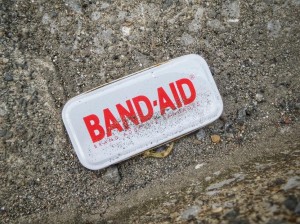Why do some people go camping?
In nature, outdoor activities are good for everyone’s health and well-being, even if it’s only 20 minutes a day. However, a complete camping trip takes nature’s rewards to a whole new level. Whether you are going to a remote place in dessert, a family camping hotspot by the lake, or starting a backpacking trip with your partner, the wonderful time in nature is unparalleled. This is a good excuse to disconnect from the real world and reconnect to yourself.
What camping equipment should I bring?
Fortunately, we compiled this guide of the year’s best camping necessities to prepare you for success outdoors, including tents, backpacks, sleeping bags, backpacks, camping chairs, and more… We even went to find some camping professionals who basically make a living to get their highest recommendation for essential items. Consider this a camping list for your summer outdoor adventure.
Travel camping equipment
A Tent:
You should prepare a tent or other emergency shelter for emergency situations. Otherwise, midnight floods, unusual snowstorms, or heavy dew will definitely leave you drenched, miserable, and at risk of hypothermia. The tent can also protect you and your equipment from strong winds. Whether you choose the best two-person tent or a larger cabin-style tent, make sure to bring all the necessary accessories: ropes, tent poles, stakes, and umbrellas.
Backpack:
A good lightweight backpack is really a little difficult to pick. The carrying system of the quantitative backpack will make trade-offs and struggles in support and weight. How to achieve a perfect balance must be the goal of all brands and small factories. If you are going to camp for more than three days and two nights, weight-bearing is inevitable.
Camping Chair:
Taking the sky as the quilt and the ground as the pillow, sitting on the ground, and long conversations are the most close and natural feelings. A lightweight chair that is easy to carry and sit on is definitely one of your outdoor camping equipment. If you are camping on a bicycle or a motorcycle, a simple folding chair without a backrest is the ideal choice. If you have a four-wheeler, the glamping chair options are endless. They have convenient functions, such as a place for bottles and books, and a beautiful backrest that can be sunk into them.
First Aid Kit:
You are unlikely to be life-threatening while camping, but even a long day of hiking can lead to blisters that need to be bandaged. If not treated in time, small wounds and abrasions will soon be infected, so please prepare bandages and preservatives. Your first aid kit should also include other necessities: scissors, adhesive, gauze, soap, CPR oral barrier, and emergency whistle. Be sure to bring a bottle of sunscreen and insect repellent. Sunburn and insect bites can end your journey like any laceration.
Navigation Tools (map and compass):
If your camping itinerary is hiking in remote areas, please don’t have a map and compass or GPS. The changing position of the sun can make forest landmarks unfamiliar and cause hikers to lose their way. Unprepared campers will occasionally wander in the woods for several days before being rescued or finding their way back to the camp. Getting lost or stranded in wooded areas, especially when the water supply is limited, is no joke. Even if your children only want to walk to the creek closest to the camp, make sure they have a way to return safely.
Kettle:
Water is very important for survival in outdoor activities. The farther you go, the faster you run out of it. The last thing any camper wants to do is get into trouble without fresh water supply, especially because drinking from ponds or lakes can cause serious diseases due to bacteria. Even if the wilderness you are going to is only a few feet away from your car, use a camel or other large container to carry wet things for the day. Then, carry a filter or water purification tablet with you in case you have to replenish water from a nearby stream.
Sleeping Bag:
When you go camping, the correct choice of sleeping bag is very important. The sleeping bag is like a cooler. If you put the heat in, things will stay hot. You keep it cold and things stay cold. If you sleep cold, that’s the way you stay. Always buy a sleeping bag with a temperature several degrees lower than what you expect in the camp.
After finishing your sleeping bag, you may also want to buy a sleeping pad or foam pad. The ground can be cold, hard, and sometimes bumpy-the cushion on it will definitely make you sleep better.
Light source (headlight, flashlight):
The campfire may be good and bright, but it can only be about six feet in any direction. Portable battery powered lights are very useful if you need to find items in your tent or visit the toilet at night. Many campers tout headlights as the best choice because they have hands-free function.
Ignizer:
Camping is not without a warm, crackling campfire, so you need tools that you can get started quickly. Campers can use flints, matches, cigarette lighters or magnesium lighters to make a fire. If you choose matches, make sure they are waterproof. Packing two igniters in case of failure is not a bad idea. You can also carry some kindling in waterproof containers, such as dry bark or newspaper strips. Finding a dry fire when needed outdoors can be a challenge.
Garbage bag:
Garbage bags can be used for recycling and garbage disposal, as well as for storing dirty clothes. Collecting all garbage in garbage bags and then discarding it in the designated trash can or taking it home for disposal is a good camping etiquette. Leave no trace so that the next camper can enjoy the campsite like you.
Post time: Jul-23-2021


